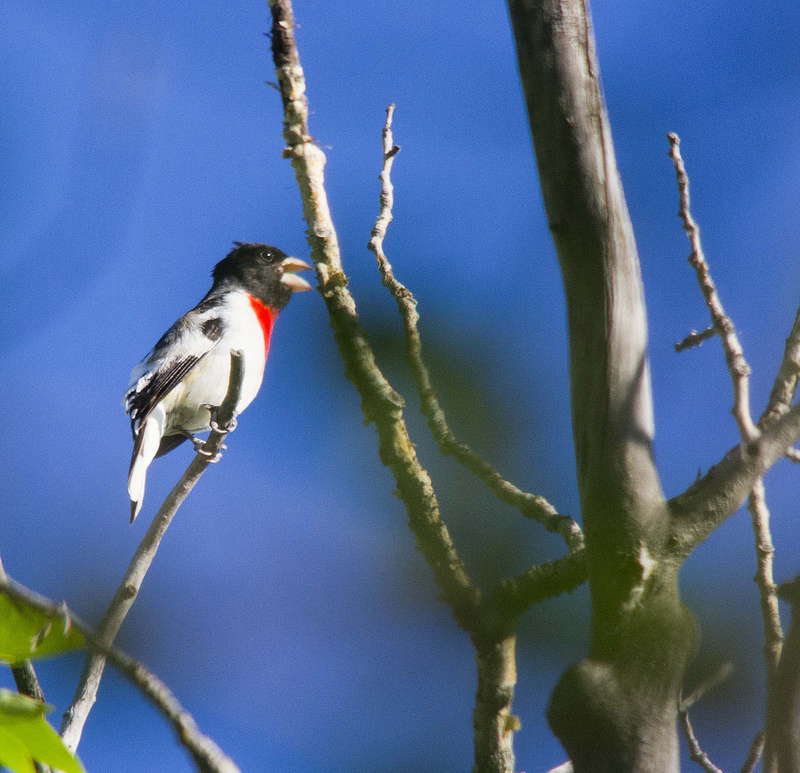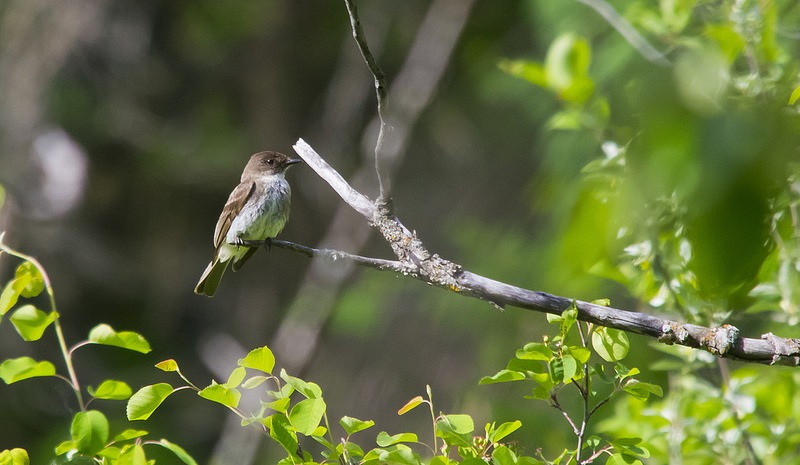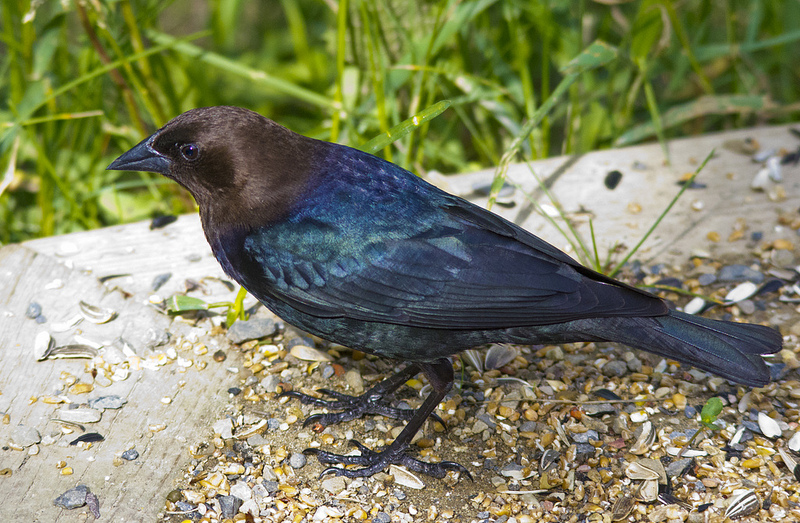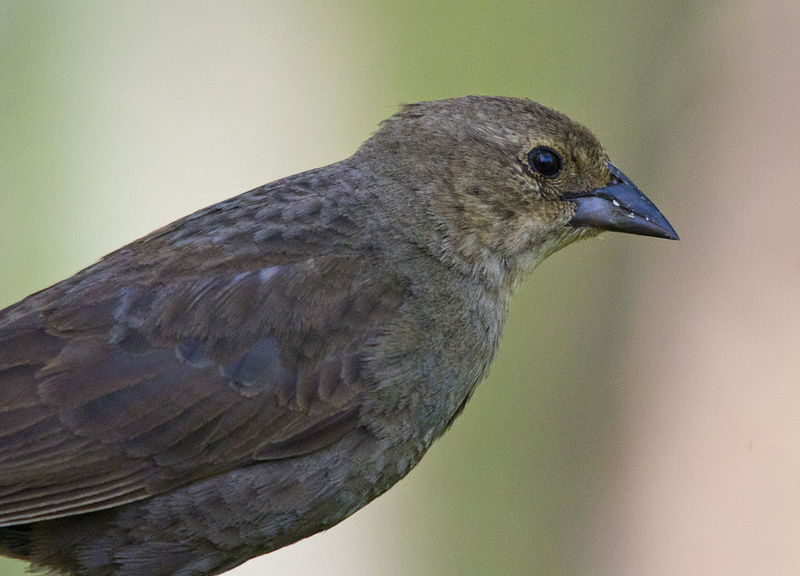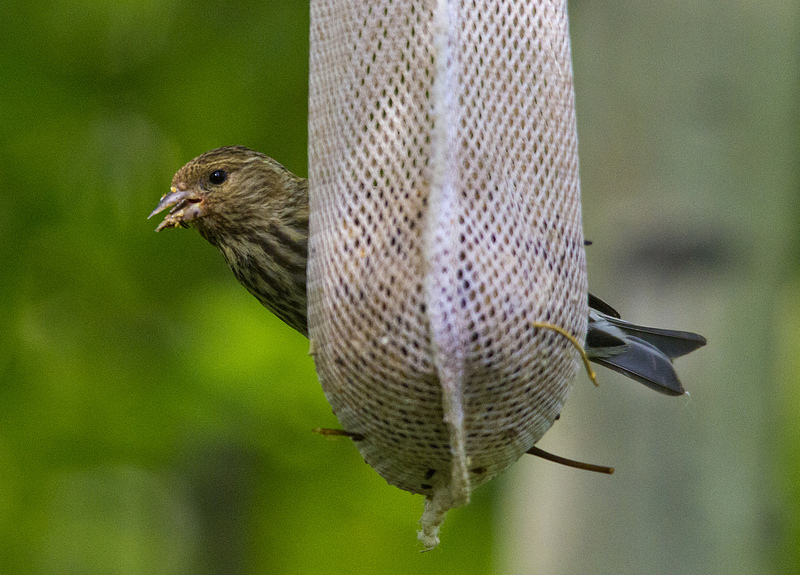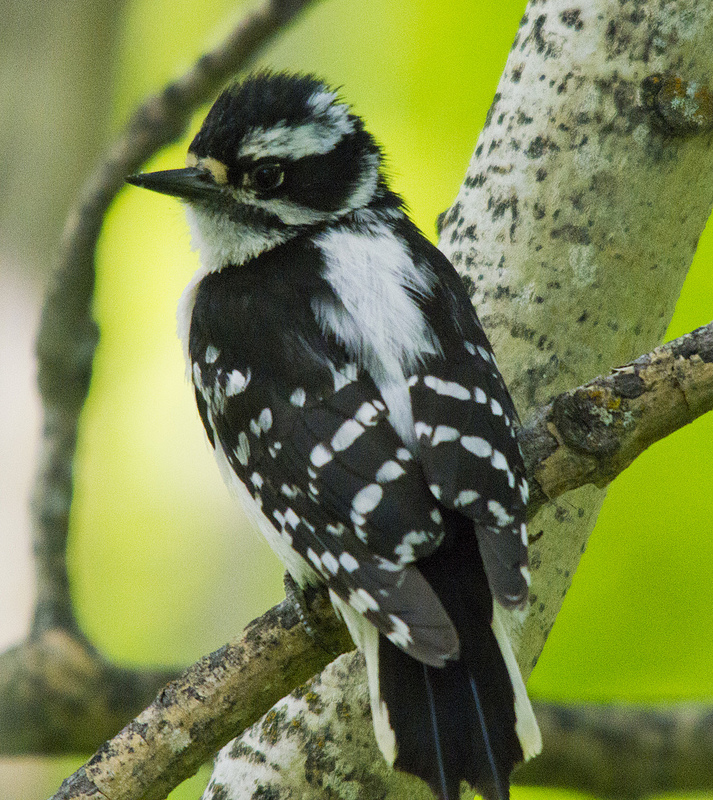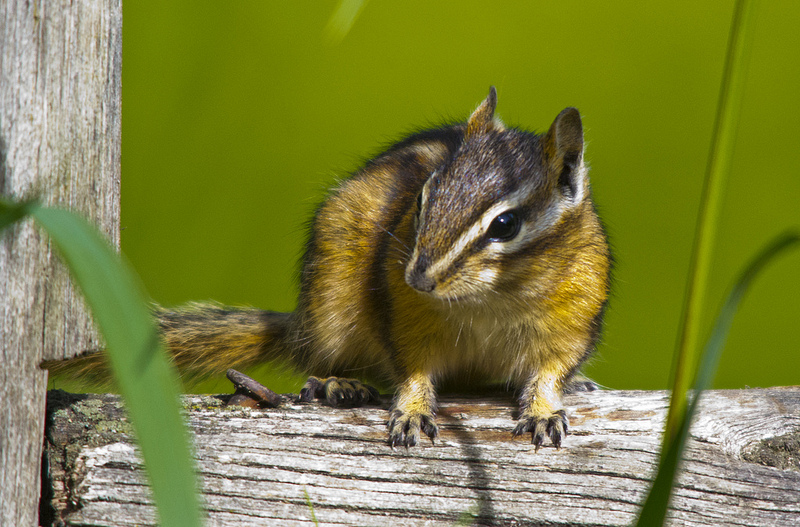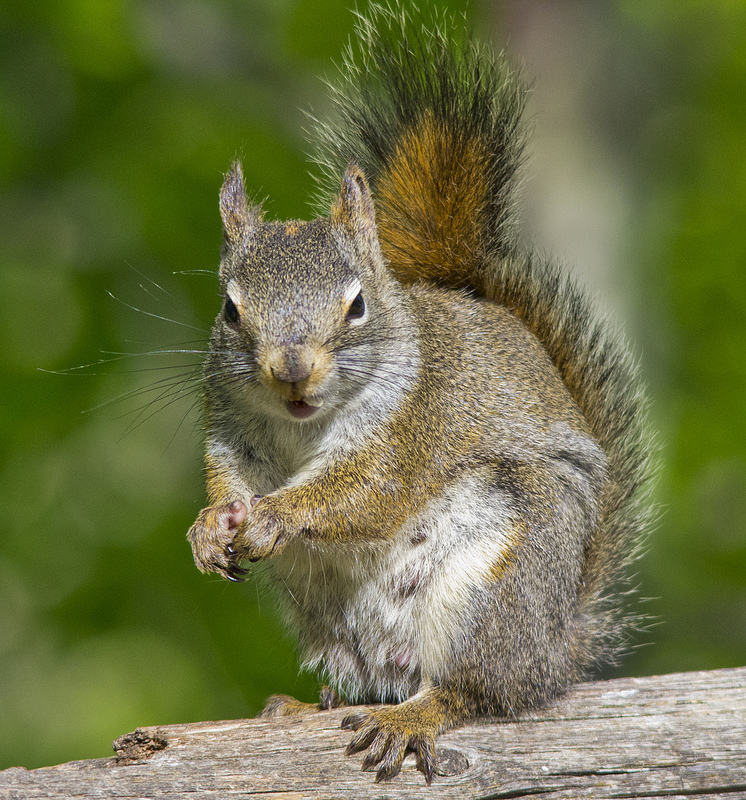Mitchell Kranz found this group of Great Gray Owls, including four adults and three owlets, west of Turner Valley in late July.
Archives
Sunday Showcase: Spotless Spotted Sandpiper
Posted by Matthew Sim
Okay, try saying that 10 times fast. Spotted Sandpipers, while spotted in their breeding plumage, do not have spots in winter or when they are juveniles. Juveniles can be separated from winter plumaged birds by the scaling and barring on their upperparts, which nonbreeding adults do not have. Right around now, we start to see juveniles so look out for them; I recently found this juvenile in Votier’s Flats in Fish Creek Provincial Park.
Sunday Showcase: Common Yellowthroat
South Glenmore Park – Grosbeaks and Hybrids
Posted by Dan Arndt
Back in June, the Friends of Fish Creek Birding Course took an excursion into the west end of South Glenmore Park. We’d been nearby just weeks beforehand when Bernie Diebolt’s group spotted a couple of Black-headed Grosbeaks, and Gus that by that time, both the Black-headed and Rose-breasted Grosbeaks would be back. While I normally have a map, I didn’t track this walk, so just the photos will have to do.
Starting off at the parking lot at the west end of 90th Avenue SW we walked along the top of the south bank before dipping down onto the hillside. The mosquitos were out in force that early in the morning, and while there were plenty of birds calling, many of us were regretting our lack of bug spray. The American Robins, Warbling Vireos, and various thrushes were calling once again up and down the slope, but one of our first birds of the day was this beautiful hybrid Black-headed X Rose-breasted Grosbeak, who flew from tree to tree responding to our recorded Rose-breasted Grosbeak calls.
While this one called to us from nearby, we could hear Rose-breasted Grosbeaks calling from both up and down the slope, and we elected to hunt down the down-slope caller, as it was along the route we were already following. Another lifer for me, though we didn’t get the greatest views…
While we were listening for the calls of this male, we could hear a Red-eyed Vireo calling nearby as well, and upon playing some calls for it, it too flew in to investigate.
Along the rise and down to the east end of the beaver ponds at the southernmost point of the Weaselhead, we were greeted by another Eastern Phoebe nesting under one of the bridges in the area.
A trek back up the hill netted a beautifully serene viewpoint overlooking much of the Weaselhead, sporting a couple of benches, bird feeders, and even quite a few birds (and other visitors) enjoying the treats provided for them. Definitely a place I’ll be back to. We even spotted what we’re pretty sure was a Ruby-throated Hummingbird, but no one was able to snap a photo in time!
The male and female Brown-headed Cowbirds seemed to not even care that we had intruded upon their feeding station.
While the Pine Siskins hid behind the tube feeders, hoping to guard themselves from prying eyes.
And of course, no feeder in the mixed spruce and deciduous forest is complete without a woodpecker sighting. This Downy Woodpecker was waiting for us, and stuck around for some photo ops before the crowd became too much for it.
Last but not least are the mammalian visitors to the feeders. We had no less than three of these nervous and scurrying Least Chipmunks at our feet at any given time.
Most memorable though, was this Red Squirrel that continuously gave us the Stare of Death™ any time we disturbed its feeding schedule.
While this wasn’t yet our last trip with the Friends of Fish Creek, we were heading into the final weekends… which I will finish up later this week!
Good birding!
Griffith Woods – New surprises at every turn
Posted by Dan Arndt
As I wrote in my original post about Griffith Woods with the Winter Birding course, I haven’t had much opportunity to visit this beautiful park on the edge of the city, and Sunday morning was only my second visit. The route we took this week was almost identical to the one we took in March, but the birds we saw were vastly different.
We started by walking east from the parking lot, where we were inundated by a huge number of birds singing. Not only new birds for the year for many of us, but for myself at least one new life bird, and great views of others that I’d only seen in the distance or through foliage. Both White-crowned and White-throated Sparrow species were present and singing, but we also heard and saw a single male Purple Finch.
On the river itself, a few Spotted Sandpipers searched for food along the shore, while a pair of Belted Kingfishers patrolled the river in search of small fish.
Further east, on the banks of the large eastern ponds, we had great views of an adult and a juvenile Red-naped Sapsucker, a House Wren at the entrance of a nest hole, and a Gray Catbird who flew in for a closer inspection as we played back a recorded call.
To top off those great views, we also spotted a pair of what we identified as Least Flycatchers along the edge of the ponds before they disappeared into the deeper brush.
We left the ponds after searching a bit longer for some other birds that we could hear nearby, but only the briefest glimpses confirmed the songs of the Yellow Warbler, Lincoln’s and Song Sparrows, and the ever present Clay-colored Sparrows buzzed in the background.
Turning back west, we continued past the parking lot and deeper into the spruce forest of Griffith Woods, which meanders through a number of small tributary channels of the Elbow River, very small ponds and wetland areas, but is dominated by the White Spruce that make up a significant portion of the foliage. The birds were heard more than seen, and while we heard a number of Pine Siskins, White-winged Crossbills, Boreal Chickadees, and both Hairy and Downy Woodpecker species, it was hard getting our binoculars on them, let alone the camera lens!
Coming to one of the first bridges, we saw a pair of sandpipers, which initially we thought were also Spotted Sandpipers, as before, but the white breast, greenish legs, and drastically different demeanor identified them as Solitary Sandpipers, which can sometimes nest in trees, as we noticed a few minutes after this shot was taken.
We meandered for the next half hour with very few birds seen, but heard Chipping Sparrows, Ruby-crowned Kinglets, and what we thought was a flock of Black-capped Chickadees mobbing a predator, but turned out only to be an unusually vocal flock. A moment later, the call of the Audubon’s subspecies of Yellow-rumped Warbler was heard only a few meters away. Once again, we had great views of it as it was protective of its territory, indicating that it would very likely be breeding in the area if it can find a mate this season.
Our last really great views were of the male Pileated Woodpecker that we originally saw back in March, once again protecting the nest hole in an abandoned power pole near the condominium complex.
On our way out, we did get one other new bird on the year in Calgary. High above us soared a juvenile Golden Eagle, with bright white patches under the wings, and that incredible golden brown hue over the rest of its body. While my camera couldn’t quite zoom in far enough to get a decent shot of it, my binoculars gave me good enough views that I’m looking forward to getting back out into the country to see these birds up close again. As for Griffith Woods, I look forward to exploring it once again this summer, and into the fall once the warblers begin heading south once again.
Weekend Photos
Some great pics sent to us by folks out birding over the weekend!
We had an interesting Saturday afternoon at the Inglewood bird sanctuary with two unusual events. First we had a Long-eared owl sighting, and then observed a mink “running” away from an upset nesting goose. Byron and Cheryl
Gianfelice also had a great birding day on Saturday, with sightings of both a winter visitor and a returning spring migrant. The White-winged Crossbill and Eastern Kingbird were photographed at Weaselhead. [UPDATE: After this post went up, it was pointed out to us that the bird below is likely an Eastern Phoebe, not a kingbird. It is lacking the white tail tip, and it is very early for kingbirds to return to Calgary. Pat will no longer be making snap judgements on bird ID’s and thank you Gus for the correction!]

















